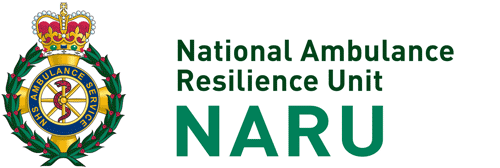It’s so important to remember that cold does kill, even in places where the temperatures aren’t at their lowest. Most of our advice on keeping warm in cold weather may seem like common sense, it’s important that we make the point that people should think about how cold can affect them.
Our advice is that when indoors, have plenty of warm food and drinks to stay warm and try to maintain indoor temperatures to at least 18°C, particularly if you have to sit still for long periods, have long term illness or are 65 or over.
Andy Page, Chief Operational Meteorologist at the Met Office, said:Before bad weather arrives is a good time to think about how the bad weather may affect your friends and family, particularly if they are older or very young or have pre-existing health conditions. These groups can be particularly vulnerable to the ill-effects of cold so think now what you could do to help - if you, or they, are eligible for a flu vaccination make sure you get it as soon as you can.
The Cold Weather Plan for England sets out a series of actions that health and social care organisations, voluntary and community groups, and individuals can take and plan for cold temperatures to help reduce cold-related illnesses and deaths. Top tips to prepare for colder weather:North easterly winds are expected to bring cold air across the whole country over the weekend. Some snow is likely in places, mainly the north and east, before a ridge of high pressure builds from the west during Monday. This will give some fine, sunny weather by day, but under clear skies overnight some very low temperatures are expected, particularly where there is snow cover. By the middle of the week a band of rain, with hill snow, is expected to move slowly across the country from the west, bringing with it less cold weather.
- look out for friends and family who may be vulnerable to the cold and ensure they have access to warm food, drinks and are managing to heat their homes adequately
- try to maintain indoor temperatures to at least 18°C, particularly if you are not mobile, have long term illness or are 65 or over
- stay tuned for weather forecasts, ensure you are stocked with food and medications in advance (have deliveries or ask a friend to help)
- take weather into account when planning your activity over the following days
- avoid exposing yourself to cold or icy outdoor conditions if you are at a higher risk of cold related illness or falls
- discuss with friends and neighbours about clearing snow and ice from in front of your house and public walkways nearby, if unable to do so yourself
Background information
- A level 2 cold weather alert means there is a forecast in which there is at least a 60% chance of weather in which average temperatures will drop to at least 2°C or below
- The Cold Weather Plan for England is updated each year to provide health and social care services with emergency planning and preparedness guidance in the event of severe weather and periods of cold weather
- For more information about the cold weather alert system visit the Met Office website.
- Read more information on winter preparedness.
- Public Health England’s mission is to protect and improve the nation’s health and to address inequalities through working with national and local government, the NHS, industry and the voluntary and community sector. PHE is an operationally autonomous executive agency of the Department of Health. Follow us on Twitter @PHE_uk.
Public Health England press office
CRCE
